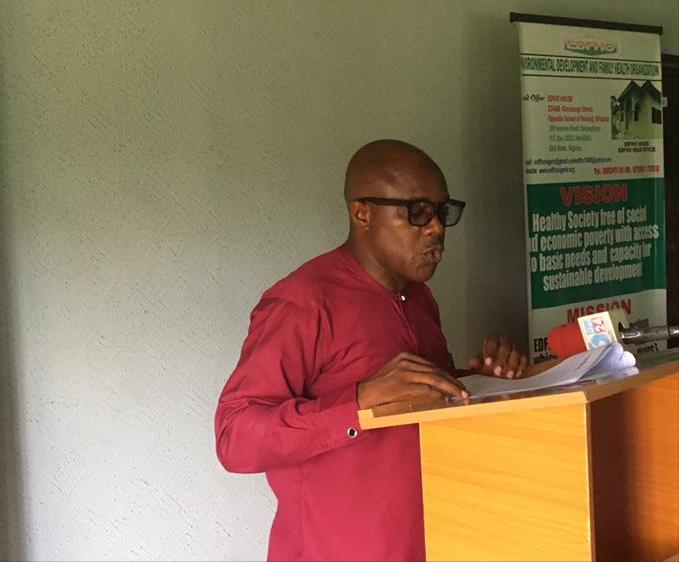Adebayo Adenrele
…urge citizens to take ownership of PHCs for improved service delivery
Civil Society Organizations in Ekiti State on Thursday called on Governor Biodun Oyebanji to recruit more Doctors and Nurses into Primary Heathcare Centres (PHCs) in order for the vulnerable people at the grassroots to enjoy more quality service healthcare delivery.
This was revealed at a press conference organized by the ATM Networks (HIV, Tuberculosis and Malaria) Project and Civil Society for Malaria Control, Immunization and Nutrition (ACOMIN), in Ado-Ekiti, Ekiti State Capital.

Speaking at the press briefing, Ekiti State Cordinator of ATM Project, Dr Taiwo Benson bemoaned the low number of healthcare workers at various PHCs in the state, urging government to recruit more healthcare practitioners for the benefits of people at the grassroots.
The organizations also raised alarm over spike in tuberculosis disease in Nigeria, saying the country is among the top thirty countries burdened by the infection in the World.

Also on the increase in Nigeria were Human Immunodeficiency Virus (HIV) and malaria.
Benson lamented that these diseases are common among the vulnerable population as a result of socio-economic disparities.
He noted that addressing these diseases requires more than pragmatic concerns, adding that systemic solution must tackle poverty, inequality and access to health care.
According to him, “PHC is the closest to the community and most people in the community are poor and vulnerable and they do not have the resources to be able to access health care services.
“We want to appeal to the government to address inadequate health care workers in Ekiti state because majority of Ekiti indigenes reside in the community and may not have resources to access healthcare at the teaching hospital.
“We want to appeal to government to recruit more Doctors, more Nurses in PHC because their numbers is very small.
“Nigeria faces significant health challenges, ranking among the top thirty countries burdened by tuberculosis and TB-HIV co-infections.
“HIV/AIDS, Tuberculosis and Malaria disproportionately affect vulnerable populations due to socioeconomic disparities. Addressing these diseases requires more than pragmatic concerns like systemic solutions that must tackle poverty, inequality, and access to healthcare.
“The recent survey from the National Bureau of Statistics shows that about 133m Nigerians are multi-dimensionally poor.
“Poverty exacerbates tuberculosis, government needs to establish programme that will take people out of poverty so that when people have access to economic income, they will be able to access quality health care and live in a conducive environment”. He said
Reeling out the achievements of the organization in Ekiti in 2024 through COVID-19 Response Mechanism (C19RM) community-led Monitoring Initiative, he said:
“We have renovated structure at PHC Ilumoba and Ijan, faulty ambulance has been fixed at PHC Adin Ilawe, Electricity has been restored at PHC Igbara Odo, provision of security guard at PHC Erio, among others.”
On his part, the Ekiti state chairperson of Civil Society for Malaria Control, Immunization and Nutrition (ACOMIN), Mr Olu Ogunrotimi urged citizens to take ownership of the PHCs in their vicinities by selflessly providing services or resources for the uplift of the facilities.

He equally enjoined them to join hands with the government to ensure that the quality of service delivery at the PHC is strengthened and improved.

